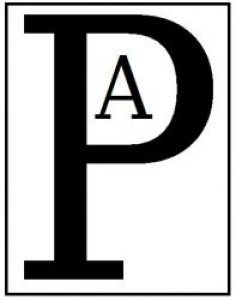
We have blogged about the Illumina/Grail case and Art. 22 EUMR referrals a few times (here, here and here). Today, the case was in the spotlight again. Advocate General Emiliou delivered his non-binding opinion, finding that the European Commission did not have jurisdiction to block Illumina’s acquisition of Grail. In the following, we will take a look at the opinion and a non-related case from a country which is not known for its merger control decisions – Luxembourg.
A short recap
Traditionally, the European Commission only reviewed transactions that were notifiable under the European Merger Control Regulation or that were notifiable in one (or more) EU Member State(s) and were referred to the Commission by national regulators or the parties. In September 2020, the European Commission announced that it would start accepting referrals from Member States under so-called Art. 22 of the EU’s merger regulation irrespective of whether the respective national regulators had the power to review a transaction themselves.
The acquisition of Grail by Illumina was the first transaction in which the new policy was applied, followed by the takeover of Autotalks by Qualcomm and European Energy Exchange’s takeover of Nasdaq Power. Illumina’s action to challenge the jurisdiction of the European Commission was dismissed by the General Court in July 2022.
What AG Emiliou thinks
Illumina appealed the General Court’s judgement to the European Court of Justice (ECJ). Before the ECJ rules on such a case, an Advocate General (AG), in this instance AG Nicholas Emiliou, issues an opinion on how the court should decide. This opinion is non-binding, even though the ECJ often – but not always – follows it.
AG Emiliou’s opinion is the (unexpected?) big bang. He comes to the conclusion that the General Court erred in its interpretation of Art. 22, taking into account the wording, history, context and purpose of that provision, as well as the logic of EU merger control and fundamental principles of EU law. In my view, the following points are particularly worth highlighting:
- According to AG Emiliou, the wording of Art. 22 is somewhat ambiguous, so that it is necessary to employ additional methods of interpretation, considering the context in which it occurs, and the objectives pursued.
- Regarding the historical interpretation, AG Emiliou holds that the legislative materials referenced in the contested judgment have limitations in showing the intention of the EU legislature. He notes that some documents were not considered at all.
- AG Emiliou criticizes the contextual interpretation of the General court by pointing to inconsistencies in the interpretation and finds that, although there are elements going in both directions, the provisions and recitals of the EU merger regulation support the argument that the referral mechanism was not intended to encompass mergers below national thresholds.
- With a view to the General Court’s teleological interpretation, AG Emiliou contends that the General Court’s interpretation disrupts the balance between objectives such as subsidiarity, legal certainty, and efficiency, potentially burdening merging parties with uncertainty and procedural complexities. Overall, he suggests that the interpretation could lead to significant practical challenges and inefficiencies in merger control procedures.
- Lastly, AG Emiliou raises a number of systemic issues regarding the General Court’s interpretation. According to him, the interpretation significantly expands the European Commission’s jurisdiction, potentially allowing it to review almost any merger globally, even those without significant presence or turnover in the EU. This expansion raises issues related to institutional balance, territoriality of EU law, international comity, equality, proportionality, and the principle of effectiveness. Overall, he asserts that the General Court’s interpretation introduces uncertainties and burdens for merging parties and conflicts with established legal principles.
Wasn’t there another Art. 22 EUMR referral last week?
Yes, the European Commission just last week accepted Luxembourg’s request for a referral of the acquisition of Boissons Heintz by Brasserie Nationale, both based in Luxembourg. The transaction mainly concerns the wholesale distribution of beverages in Luxembourg. While Luxembourg is the only European country which has no own merger control regime (but is about to introduce one), the transaction does not meet the EU turnover threshold or the thresholds of any Member State. No other country has joined Luxembourg’s referral request.
However, different from the cases mentioned above, Luxembourg as the referrer does not have a merger control regime which thresholds are not met, but has no merger control regime at all. No other Member State joined the referral request. From the outside, it might seem surprising that the transaction affects the trade between Member States, which is an essential prerequisite for a referral.
What is next?
As for Illumina/Grail, now there will be even more focus on whether the ECJ follows AG Emiliou’s opinion. Apart from the fact that the ECJ follows the opinion of the Advocates General in most cases (but there are surprises!), this would also be the desirable outcome here. The current practice of the European Commission regarding Art. 22 referrals does not only seem to be difficult to justify with legal arguments, but also creates considerable legal uncertainty for dealmakers because every transaction can practically be examined by the European Commission.
As for the Luxembourg case, it should be noted that also AG Emiliou emphasized that permitting reviews of mergers that could distort competition locally, where the Member State in question does not have any national merger control system was the reason for introducing Art. 22 EUMR in the first place and is “common ground”. So, while both cases have a Luxembourg angle, the outcome of one case will not necessarily influence the other one.
But wait: Could the solution for the European Commission be to just have Luxembourg refer transactions to the Commission going forward, including when they are not notifiable anywhere in the EU (Luxembourg did not refer Illumina/Grail)? That would of course require Luxembourg to drop plans for an own merger control regime…
Photo by Zeyad Bin Kuwair on Unsplash
